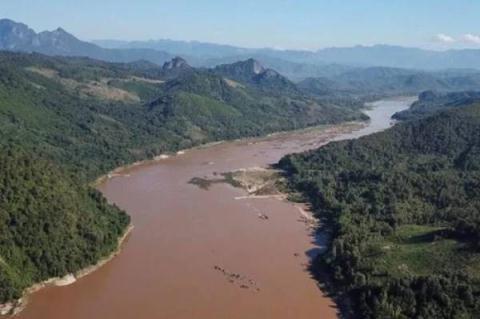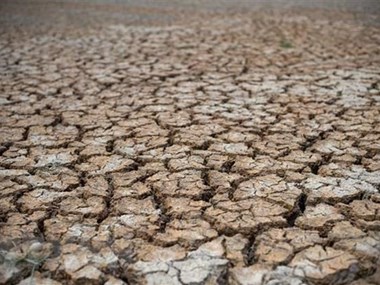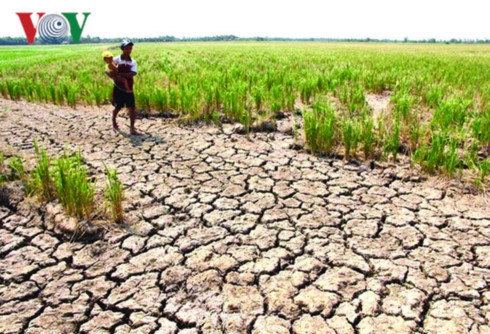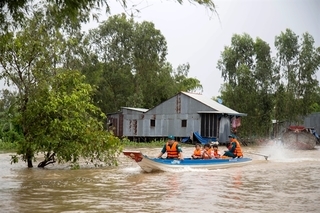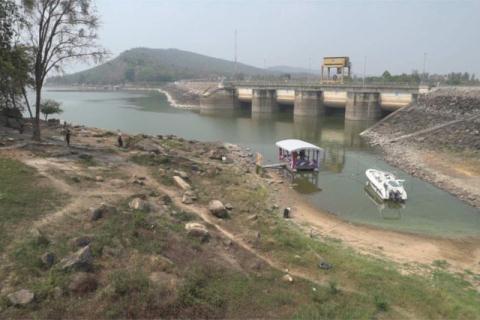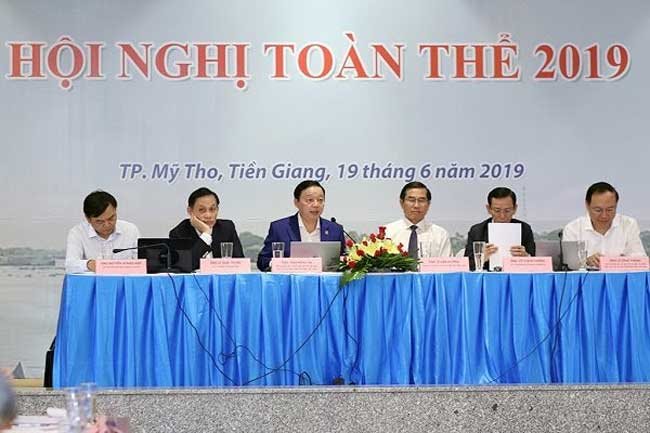- © Copyright of Vietnamnet Global.
- Tel: 024 3772 7988 Fax: (024) 37722734
- Email: evnn@vietnamnet.vn
Mekong River
Update news Mekong River
Laos considers Luang Prabang hydropower while Vietnam ponders how to react
 Since it appears to be impossible for Vietnam to persuade Laos to stop building hydropower plants, Vietnam needs to minimize the negative impact.
Since it appears to be impossible for Vietnam to persuade Laos to stop building hydropower plants, Vietnam needs to minimize the negative impact.
Vietnam's Mekong Delta subsides up to 5cm each year
 The Mekong Delta region is sinking between 2 and 5cm per year, Lao Dong newspaper reported, citing source from the German Agency for International Cooperation (GIZ).
The Mekong Delta region is sinking between 2 and 5cm per year, Lao Dong newspaper reported, citing source from the German Agency for International Cooperation (GIZ).
Mekong Delta to face earlier, more severe salinity, droughts
 Salinity and droughts will come earlier and be more severe than in the 2018-2019 dry season in the Mekong Delta, according to Hoang Phuc Lam, Vice Director of the National Centre for Hydro-Meteorological Forecasting.
Salinity and droughts will come earlier and be more severe than in the 2018-2019 dry season in the Mekong Delta, according to Hoang Phuc Lam, Vice Director of the National Centre for Hydro-Meteorological Forecasting.
Mekong water’s record low level threatens downstream countries
 The Mekong River Commission last month said the Mekong water levels during this early flood season from June to July are at historical low, wreaking havoc on hundreds of millions of inhabitants in downstream countries.
The Mekong River Commission last month said the Mekong water levels during this early flood season from June to July are at historical low, wreaking havoc on hundreds of millions of inhabitants in downstream countries.
Mekong Delta forecast to have small floods this year
 The Mekong Delta will not have early or intense flooding in its upper parts this year because of the low water level in the Mekong River, according to the National Centre of Hydro-Meteorology Forecasting.
The Mekong Delta will not have early or intense flooding in its upper parts this year because of the low water level in the Mekong River, according to the National Centre of Hydro-Meteorology Forecasting.
Mekong River suffers as Thailand stores more water
 The Mekong water level in the section which runs across Thailand is at 2.6 meters, the lowest level in the last decade. Thai Nakkhon Phanom provincial authorities have begun storing water in 13 reservoirs in 12 districts for agricultural production.
The Mekong water level in the section which runs across Thailand is at 2.6 meters, the lowest level in the last decade. Thai Nakkhon Phanom provincial authorities have begun storing water in 13 reservoirs in 12 districts for agricultural production.
Opposition to Laos’ hydropower projects makes no difference: experts
 Despite the opposition of the Mekong River Commission and its arm in Vietnam, Laos has built hydropower plants along the Mekong River, so experts at a conference in Tien Giang last week pondered whether it is necessary to raise their protests again.
Despite the opposition of the Mekong River Commission and its arm in Vietnam, Laos has built hydropower plants along the Mekong River, so experts at a conference in Tien Giang last week pondered whether it is necessary to raise their protests again.
Water shortages require more investment in protection projects
VietNamNet Bridge - The water shortage in Vietnam is becoming serious, requiring management agencies to strengthen water sources protection.
Sediment loss in Mekong River killing southern delta
VietNamNet Bridge – The Cuu Long (Mekong) Delta is home to nearly 18 million Vietnamese people, and is the most important rice field and fishing region of the country.
Projects encroaching on the sea damage environment
To have more land for infrastructure, locals have been willing to compromise nature, though the long-term effects will ultimately hurt the economy.
Experts: Damming places Mekong Delta in peril
VietNamNet Bridge – Damming on the Mekong River mainstream, coupled with sand overexploitation, would not only hit aquaculture but also threaten the Mekong Delta’s existence in the future,
Laos starts construction on Don Sahong hydropower project
VietNamNet Bridge - Vietnam, which is located on the lower course of the Mekong River, is expected to see fish resources decline and erosion and saline intrusion increase because of the new hydropower plant in Laos.
Many islets disappearing in southern Vietnam
VietNamNet Bridge - Many islets in the Mekong River have eroded seriously or even disappeared, to the regret of many former residents.
China continues releasing water to drought-hit Mekong River countries
China will continue discharging water from a hydropower station into the downstream Mekong River for drought relief, Chinese Foreign Ministry Spokesperson Lu Kang said on April 12.
American GI’s photos capture the other side of war
VietNamNet Bridge – After being drafted to serve in the war in Vietnam, an American GI decided to treat his days off-duty in the country as a 'working vacation' with camera in hand.
Mixed reactions after China announces it will release water
While the people and leaders of the Mekong Delta provinces are pleased that China decided to release from hydropower dams, irrigation experts said that most of the flow will be blocked before it runs to Vietnam.
MRC Joint Committee convenes 43rd meeting
How to use water resources of the Mekong River effectively heated up the 43rd meeting of the Mekong River Commission (MRC) Joint Committee taking place in Vietnam’s Mekong Delta city of Can Tho.
China’s water discharges highly anticipated
China’s promised water discharges from its Jinghong Hydropower Station to the lower reaches of the Mekong River from March 15-April 10 are highly anticipated by local authorities and people in Vietnam’s Mekong Delta localities.
Vietnam works with Mekong river countries on water use
The Foreign Ministry is working intensively with China and countries along the Mekong River on together using the river’s water resource in a sustainable manner for harmonious interests of both the countries and their people living along the river.
Mekong River resources must be shared among VN, neighbours
VietNamNet Bridge – Many experts have blamed the high intrusion of salty water into the Cuu Long (Mekong) Delta on climate change and the low level of water running from the upper reach to the lower reach of the Mekong River delta.
